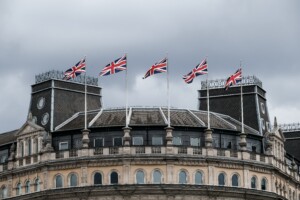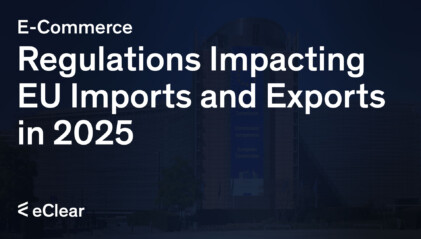There is unrest in the corridors of the Federal Ministry of Economics. Even if one may not let it show on the outside: Veronika Grimm, a respected economist and prominent voice on the German government’s Council of Economic Experts, recently expressed her deep concern about Germany’s economic prospects. Her warning is clear: Germany is facing stormy times.
The triad of the aftermath of the Corona pandemic, the ongoing energy crisis, and the challenges of climate change have already left deep scars on the wallets of many Germans. But Grimm’s critique goes deeper. She aims at politics, especially the current federal government under Chancellor Olaf Scholz. In her opinion, there needs to be more transparency and honest communication with citizens about the costs of transitioning to a climate-neutral economy.
Grimm has little sympathy for the planned measures by Economics Minister Robert Habeck, especially about the industrial electricity price. She argues that expanding energy supply is necessary to stabilise energy prices in a volatile market.
Another hot topic Grimm addresses is the German pension system. At a time when life expectancy is rising, she argues for an increase in the statutory retirement age and suggests linking it to life expectancy.
Grimm’s warnings are a wake-up call. She warns that if Germany does not act decisively and proactively, it risks losing its status as an economic heavyweight in Europe. A scenario no one wants to experience. It remains to be seen whether her advice will be heeded and whether Germany will take the necessary steps to secure its economic future.

Surprising growth of the British economy in the second quarter
The UK economy beat expectations in the second quarter, growing by 0.2%. This growth was driven by increases in household consumption and industrial production, the Office for National Statistics (ONS) reported. Despite tighter monetary policy from the Bank of England and persistent inflation dampening demand, the economy showed resilience.
In June, the economy recorded growth of 0.5%, above forecasts of 0.2%. Part of this increase was attributed to warm weather and an additional public holiday in May, introduced to celebrate the coronation of King Charles III. Industrial production grew by 1.6% in the second quarter, while the services sector grew by 0.1%.
The ONS also pointed to strong growth in household and government consumption. Mike Coop, chief investment officer for EMEA at Morningstar, commented that while the numbers were still weak, they were not as weak as expected. The Bank of England downgraded its recession forecasts for the UK in May and expects steady GDP growth of around 0.2% in the near future.
UK Chancellor of the Exchequer Jeremy Hunt was optimistic about the latest economic data, stressing that if the UK keeps to its plan, it could grow faster than Germany, France, and Italy in the long term. Despite this positive news, Ruth Gregory, deputy chief economist at Capital Economics, warned of a possible mild recession in the UK later in the year due to the impact of higher interest rates.

Spain’s ambitious hydrogen plan: A risky venture?
In the former coal-mining town of Puertollano, located in the Castilla-La Mancha region about 250 kilometres south of Madrid, rises a monument of Spanish engineering: Europe’s largest plant to produce green hydrogen. But despite this impressive achievement, the site smells of chemicals, and the oil refinery of the energy company Repsol smokes in the immediate vicinity.
Spain has grand ambitions. The country wants to become the leading supplier of green hydrogen for Germany. The Spanish energy giant Iberdrola is at the forefront of this project. But the reality in Puertollano shows that this vision is still far off. Although Iberdrola plans to supply the artificial fertiliser manufacturer Fertiberia completely with green hydrogen by 2030, the current supply level is only ten per cent.
The challenges are many. Spain, known for its dryness and droughts, is also a major exporter of agricultural products. This has made Fertiberia a global player. However, both artificial fertiliser and green hydrogen production require significant amounts of water – a resource that is becoming increasingly scarce in Spain.
The endeavour’s complexity is compounded by the fact that producing green hydrogen requires enormous energy. And although Spain benefits from abundant solar energy, it needs more green energy sources to meet the growing demand. This is confirmed by experts such as Victor Ruiz Ezpeleta from Madrid’s EAE business school.
Despite these challenges, under Prime Minister Pedro Sánchez, the Spanish government is determined to make the country a hydrogen expert. But the question remains: Is this plan realistic or just a risky venture? Spain faces a difficult task if it wants to turn its ambitions into reality. The country is at a crossroads; time will tell if it has chosen the right path.

Switzerland in Tax Change: Who Pays the Price of the OECD Minimum Tax?
The Swiss tax landscape is facing a profound change. With the planned introduction of the minimum tax proposed by the Organisation for Economic Cooperation and Development (OECD), the Swiss Confederation is signalling a realignment of its tax policy strategy. But who will be affected by this reform?
The new regime targets only some companies. The minimum taxation only affects large, internationally active groups of companies with an annual turnover of at least 750 million euros. This includes a few hundred domestic and a few thousand foreign corporate groups in Switzerland. This means that roughly 99% of companies in Switzerland will not be directly affected by this reform, and their tax treatment will remain unchanged.
The impact on the cantons is exciting. While taxation of less than 15% is possible in all cantons, especially those with a low tax burden and where many large and profitable companies are located could be more affected.
The background to the Swiss push is the OECD’s BEPS project (tax base and profit shifting). This project aims to combat multinational corporations’ tax avoidance tactics and ensure a fairer tax market.
With this step, Switzerland, often referred to as a tax haven for large corporations, shows its willingness to adapt to international standards. The draft presented, which is currently open for public discussion, outlines the adjustments in the Swiss tax system to align with the proposed OECD standards.
The exact impact of this reform on the Swiss economy and its international relations is still being determined. But one thing is clear: Switzerland is ready to redefine its tax role in the global arena, considering both the interests of large companies and its citizens.

Travel souvenirs and customs: What you need to know
Holiday time is souvenir time. Many travellers want to capture the special moments of their stay abroad with small souvenirs or make their loved ones happy at home. But only some things purchased in the holiday country are accepted by German customs. The consumer advice centre provides valuable tips to avoid unpleasant surprises.
Travelling within the European Union
The European Union makes many things easier for its citizens, including travelling. Those who travel within the EU borders can usually sigh in relief. Most goods, whether a piece of cheese from France or olive oil from Greece, can be transported across the borders without worries. But be careful: there are clear upper limits for certain products such as alcohol, tobacco or medicines. Larger amounts of cash should also be declared in advance to avoid misunderstandings.
Bringing souvenirs from non-EU countries
Travelling outside the EU is often exotic and tempting, with various special souvenirs. But travellers should be cautious here. Import regulations are stricter, and many products, especially alcohol, tobacco or expensive electronics, are subject to certain quantity and value limits. So, it is best to find out precisely what you are buying before you buy it so as not to fall into the tax trap unintentionally.
Valuable items in your luggage? Better declare it!
High-quality cameras, expensive sports equipment or designer clothes – anyone bringing such valuable items back from holiday should be careful. To avoid problems at customs, it is advisable to declare such items before the trip. This way, misunderstandings can be avoided, and you can start your journey home relaxed.
Beware of counterfeits
Market stalls, especially in Asia or Africa, often tempt you with supposed designer bargains at unbeatable prices. Sometimes the counterfeits even look deceptively real. But beware: buying counterfeit branded goods can have legal consequences and result in high penalties. Therefore, It is advisable to avoid such purchases and invest in authentic souvenirs.
Digital help: The “Customs and Travel” app
For all those who are unsure, the Federal Ministry of Finance offers practical help: the “Zoll und Reise” app. With this, travellers can quickly and easily find out which goods they can import without any problems and where taxes may be due.
Final thoughts
The return from your holiday should be relaxed and without any nasty surprises. When entering the country, a little preparation and observance of customs regulations will help avoid unpleasant surprises, such as additional payments.







